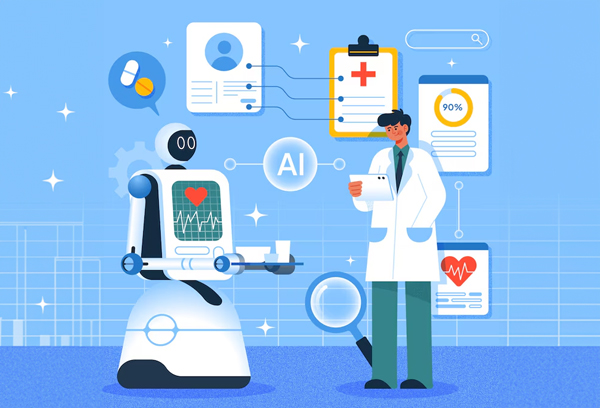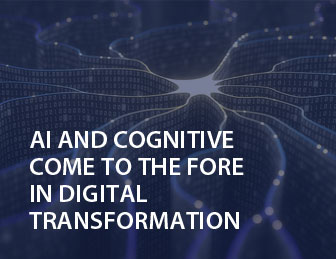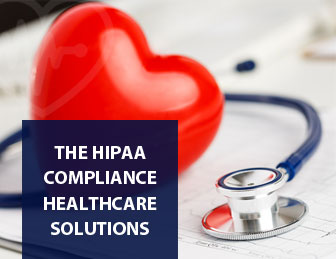The technology of GenAI is helping the sector of healthcare and life science by promoting better diagnoses, better treatment, and faster development of drugs. This pioneering tool has dramatically transformed how healthcare service deliverers carry out tasks and how researchers evolve treatments. Currently, AI-enabled solutions bring more targeted care to patients and thanks to GenAI, healthcare practitioners can diagnose diseases faster and more effectively.
Here, we discover how GenAI is applied to the procedures within the healthcare field, important benefits for doctors and patients, and how we assist in enhancing effectiveness in healthcare.
AI-Driven Diagnostics for Better Patient Outcomes
A significant factor when it comes to diagnostics is where generative AI comes into play to interpret and analyze medical data in terms of records, scans, etc. Artificial intelligence applications can pick any signs of diseases, even though they might not be visible to the naked eye, which makes it easy to diagnose them in their early stages.
Key Benefits:
- Improved Accuracy: Decreases the possibility of carrying out wrong diagnoses which are dangerous to the health of patients.
- Faster Diagnoses: Helps to make the diagnosis faster and get to the results in time to intervene.
- Enhanced Patient Monitoring: This can track data from the patient’s records thus offering immediate analysis.
For healthcare providers, this implies quicker and more accurate diagnosis, which lowers the risk of mistakes in a diagnosis. Patients receive timely treatment and this takes the pressure off the doctors through proper diagnosis, minimal complications arise hence better treatment standards are practiced.
Individualized Plans of Treatment for Enhanced Care For Practitioners
Perhaps the most effective use of GenAI is in the formulation of early patient treatment plans. AI can identify an individual’s course of medical treatment based on their past medical history, genetic makeup, and behavioral pattern.
Key Benefits:
- Tailored Care: Individual treatment programs are designed according to one’s medical conditions.
- Better Patient Outcomes: More needs to be done because it is found that treatments are more effective when personalized.
- Minimized Side Effects: London 2009 stated that it lowers the chances of reactions to treatments by maximizing them.
To the doctors, it may present the potential of formulating a treatment plan by looking for a strategy that is likely to be followed. Patients also get to receive treatments that would be specific to their health needs, and this can raise the probability of positive outcomes of these treatments and minimize the incidence of side effects, which ultimately boosts the outcomes.
Accelerating the Drug Discovery in Life Sciences For Healthcare
The process of discovery of new drugs has been long and costly, however, GenAI is taking a shortcut here by fast-tracking the identification of leads to potentially new drugs. Firms can use AI systems to wade through huge amounts of data to assess the effectiveness of novel molecules in existing drugs and better organize the discovery process.
Key Benefits:
- Reduced Time-to-Market: Currently, AI shortens the process of developing a new medicine from several years to a few months.
- Cost Efficiency: Reduces the costs of funding clinical trials and research.
- Innovation: Develops new strategies of treatment and find new uses for the drugs already out there.
This benefits the pharmaceutical companies because it means that less time and money is taken in getting new treatments to market. Pharmaceutical companies benefit as drugs are approved faster and put on the market faster meaning better and innovative treatments are offered to the patients.
Virtual Health Assistants Improving Patient Support
Virtual health assistants developed with GenAI help patients get the medical information they need around the clock, enhancing access. Through these AI systems, patients can call for appointments, figure out how to manage certain chronic illnesses or receive responses to health questions immediately.
Key Benefits:
- 24/7 Availability: They offer health care services at any given time of day.
- Reduced Wait Times: It explains how patients receive quick solutions to health inquiries without having to visit a clinic.
- Empowered Patients: Its functions include reminding patients about their condition and offering them suggestions on how to keep healthy.
This not only prevents plans for receiving patients’ visits but also assists patients in managing themselves. Doctors are again advantageous as they get to divest themselves of the repetitious work of the AI and get to concentrate more on the medical. The end consequence is being able to make healthcare delivery systems more efficient and specifically make patient engagement and follow-up more effective.
Improving Medical Studies with Artificial Intelligence
Exploratory AI is changing the way medical studies are conducted because generative AI is capable of supplying an abundance of information in record time. In genomics, it identifies disease patterns that will assist in the creation of delicate therapies.
Key Benefits:
- Faster Data Analysis: Aide enhances the performance of identifying large data sets, and hence speeds up discovery.
- Targeted Therapies: Supports the researchers to come up with better-tailored therapies.
- Accelerated Innovation: As created by AI, the insights to harness are at the frontier of possibility in medical sciences.
For example, in cancer studies, an AI can forecast the genetic mutations’ response to therapies to make the process of treatment more individualistic. Used in this context AI increases the speed of data analysis by researchers and in the near term, courses the development of therapies for various diseases and conditions to improve patient care.
Know how can Flexsin’s GenAI Solutions Help Healthcare?
At Flexsin, we’re leveraging GenAI to revolutionize healthcare, enhancing the experience for both patients and providers. Our solutions empower doctors by increasing diagnostic accuracy, enabling personalized treatment plans, and reducing administrative burdens.
GenAI in healthcare brings a range of benefits, including improved access to care through virtual assistants and advanced diagnostic capabilities. With our GenAI integration services, healthcare organizations can deliver exceptional care, streamline operations, boost patient satisfaction, and drive meaningful advancements in the healthcare sector.


 Anurag Dutt
Anurag Dutt


